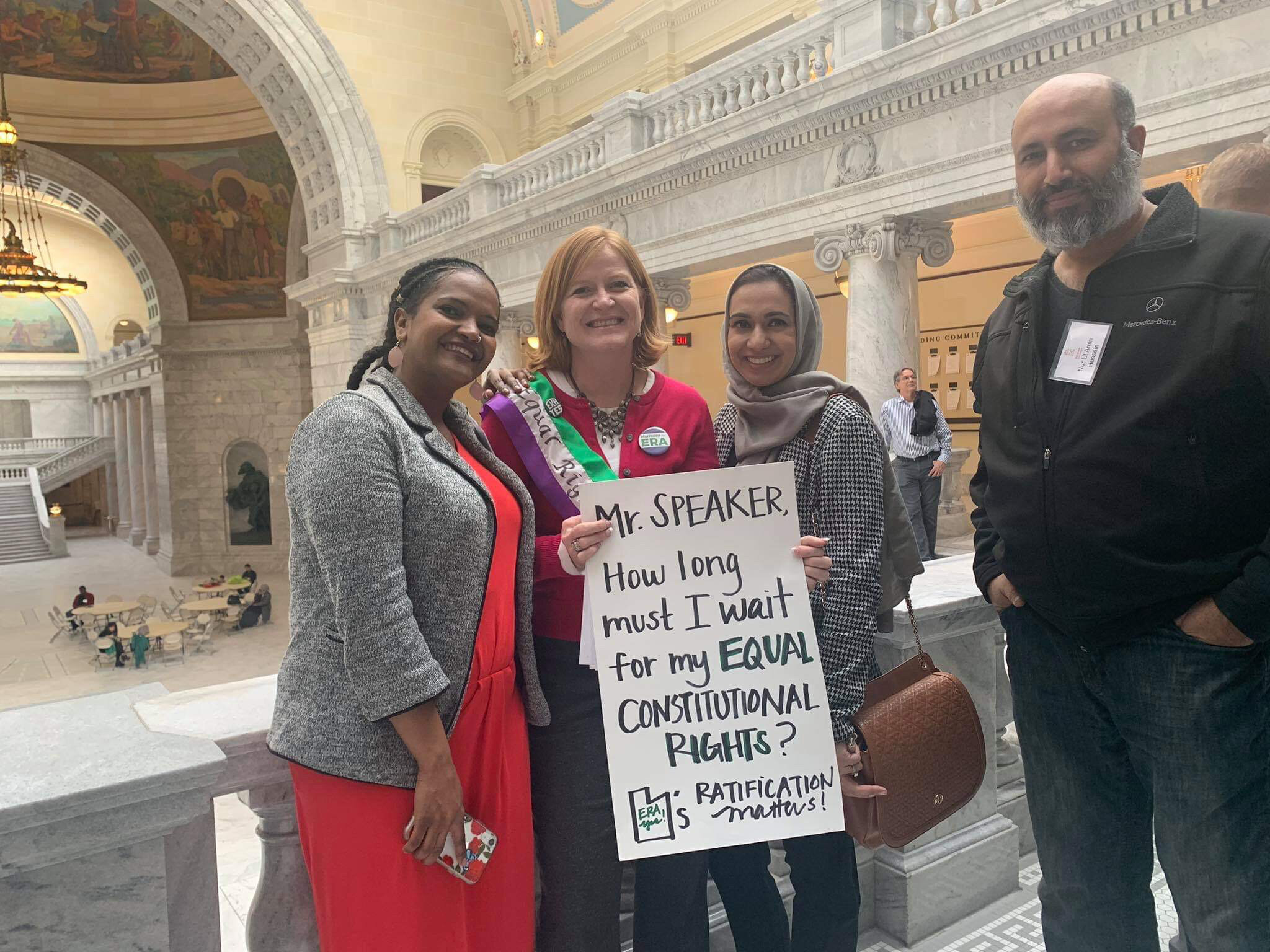

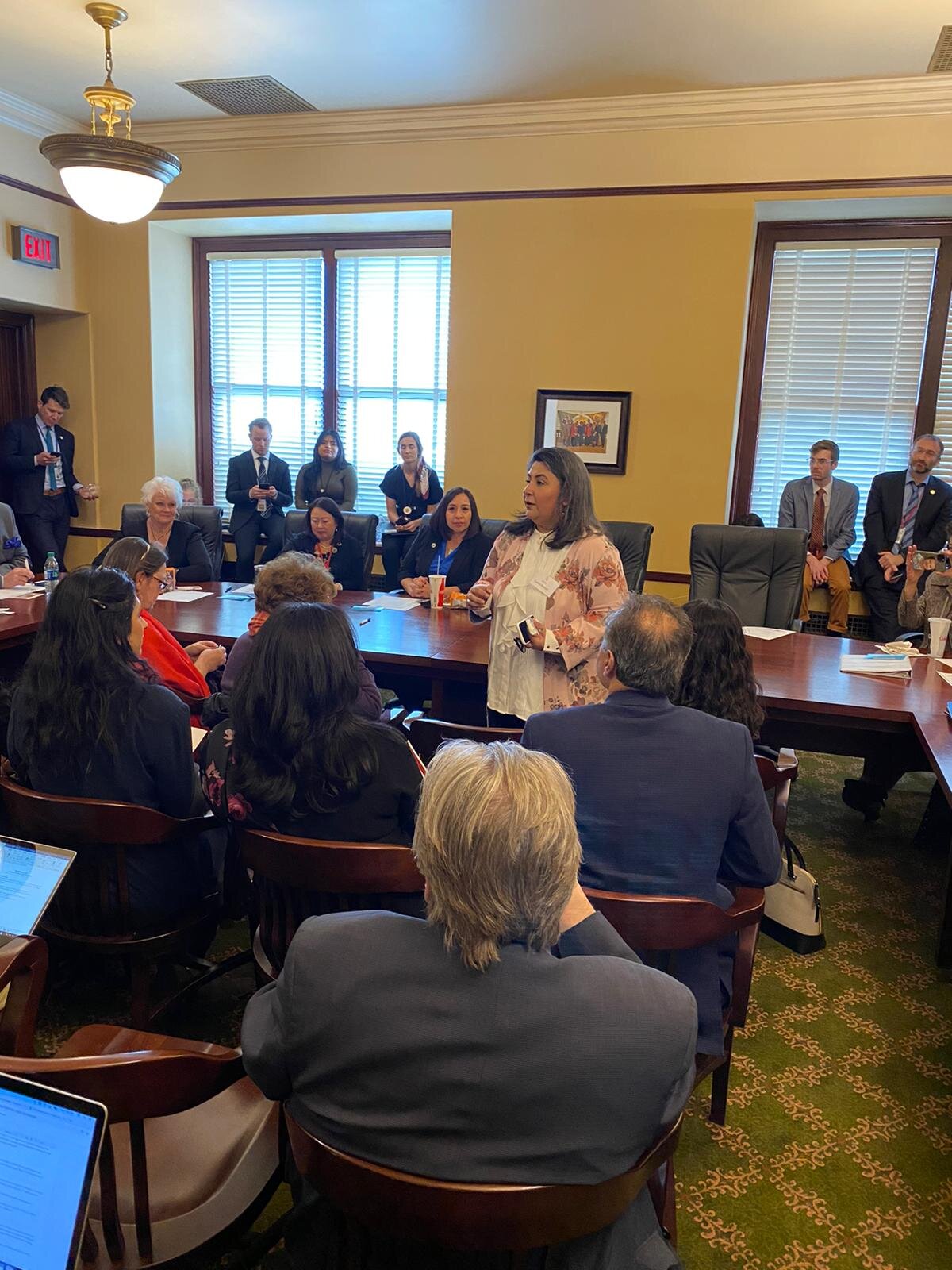
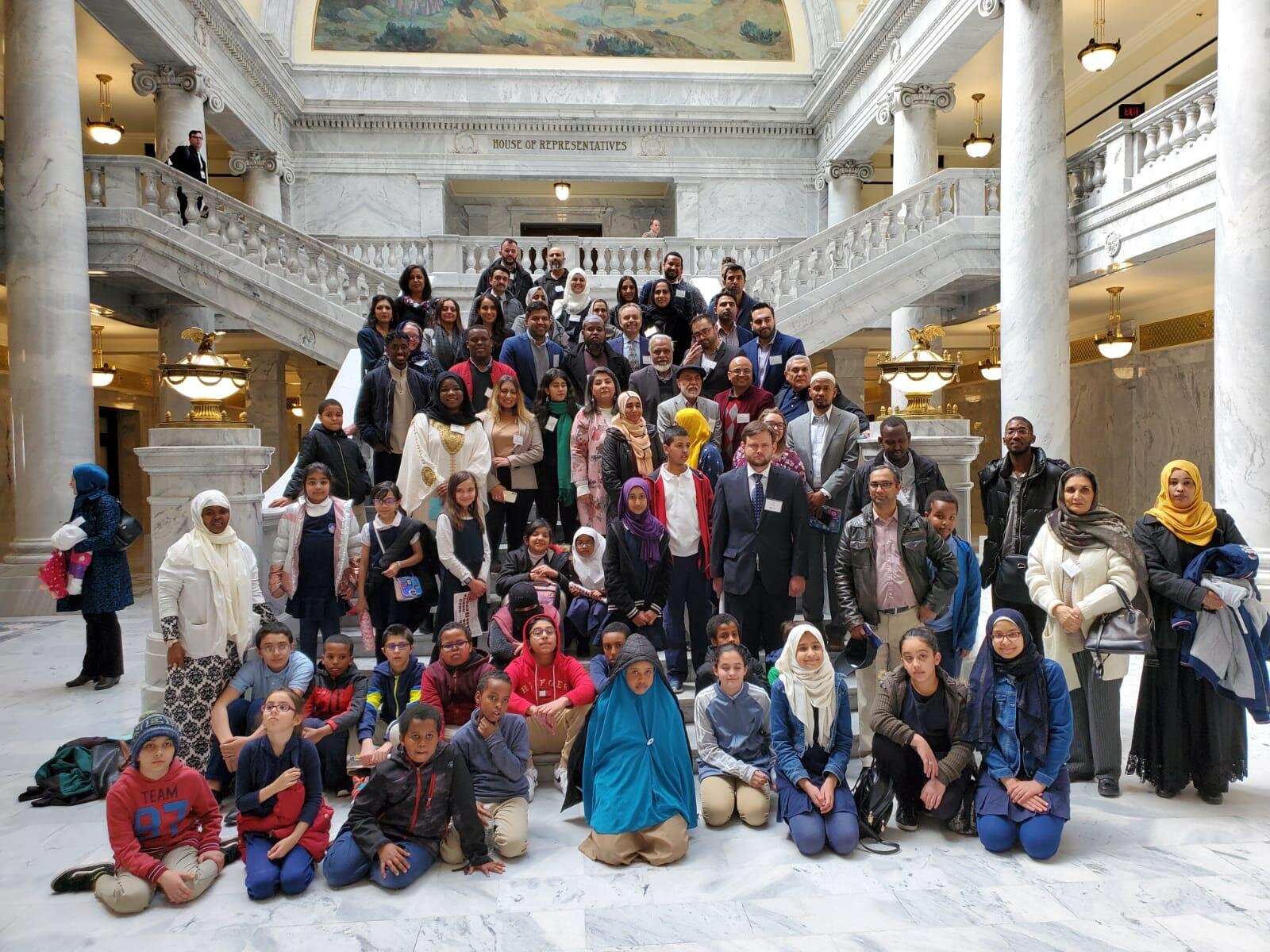
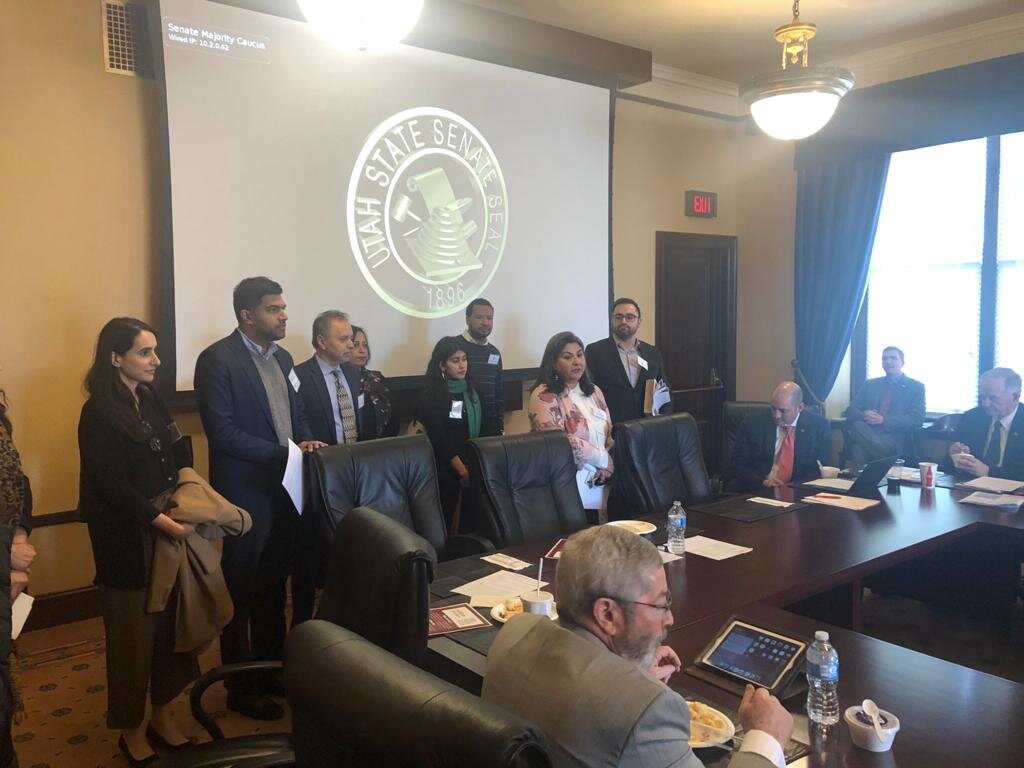
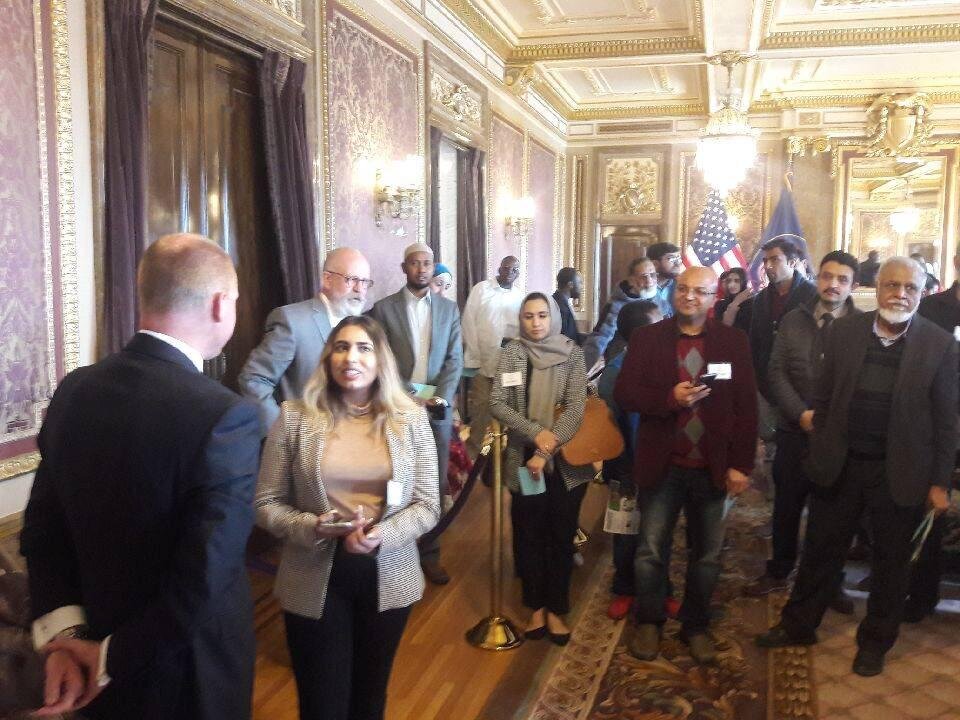
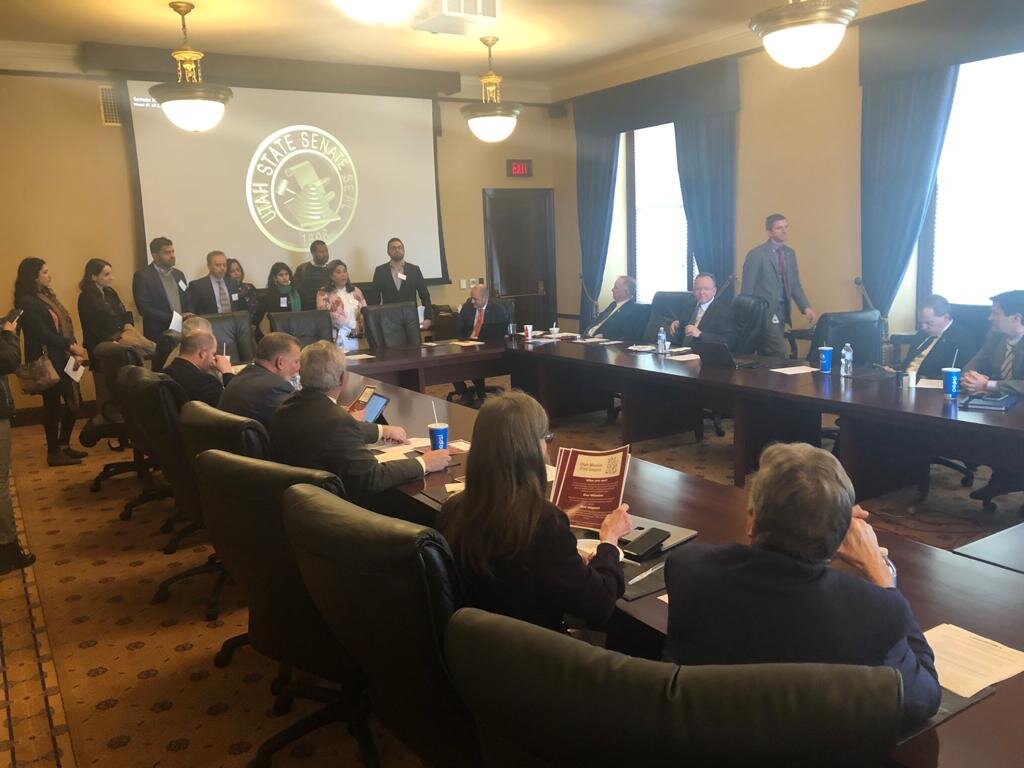



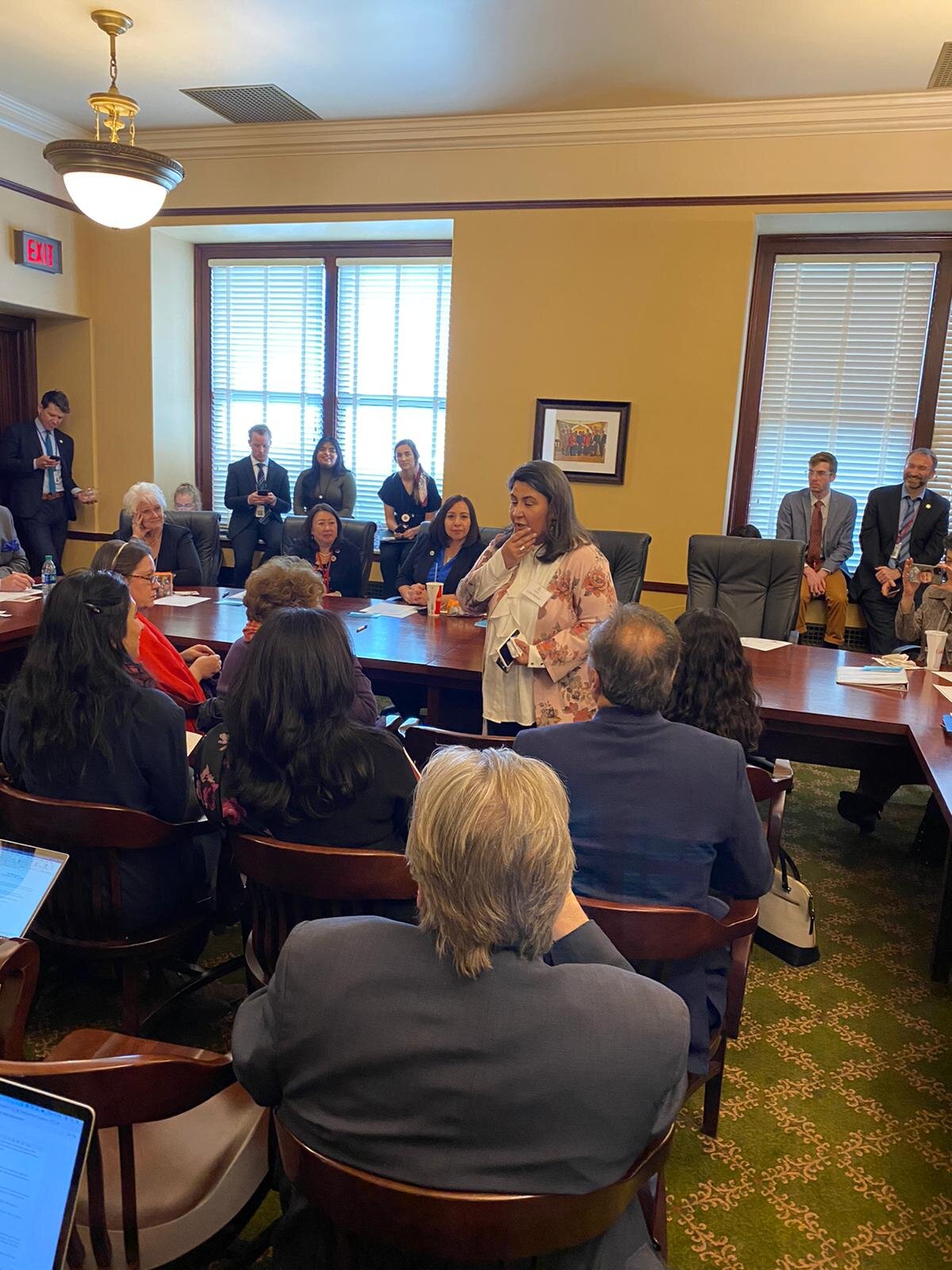

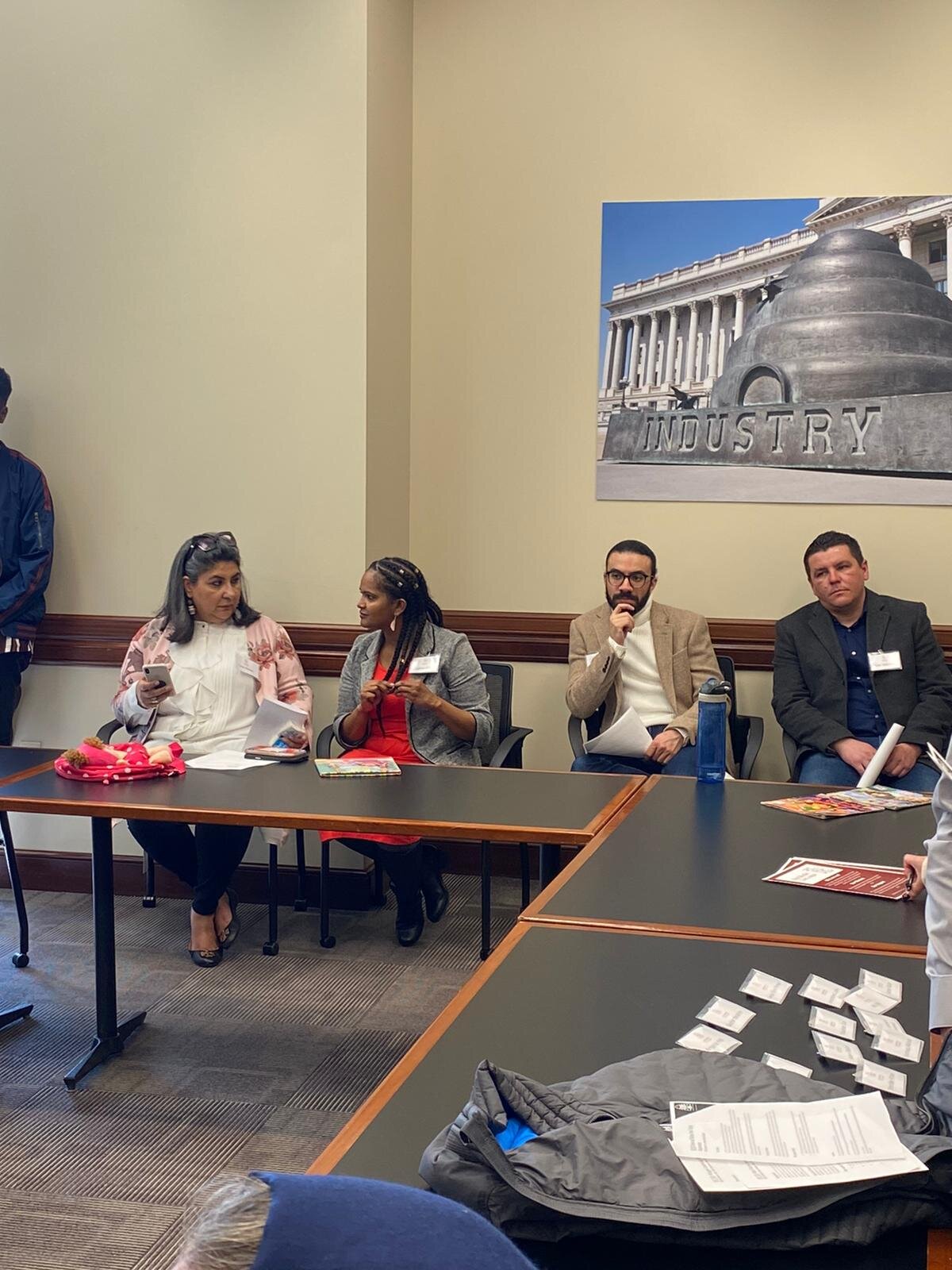
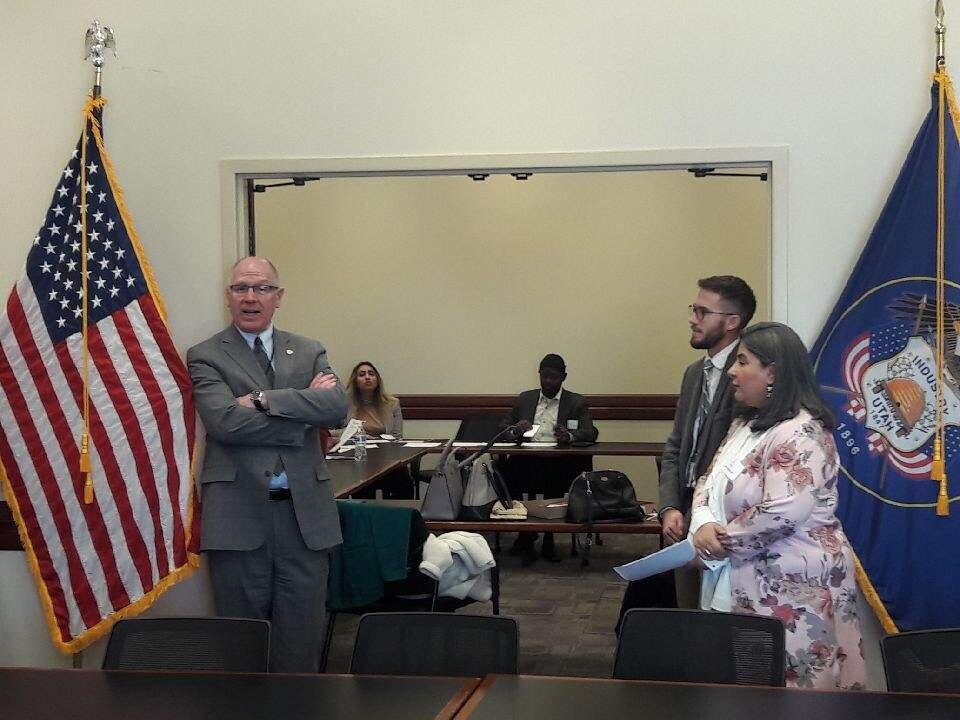
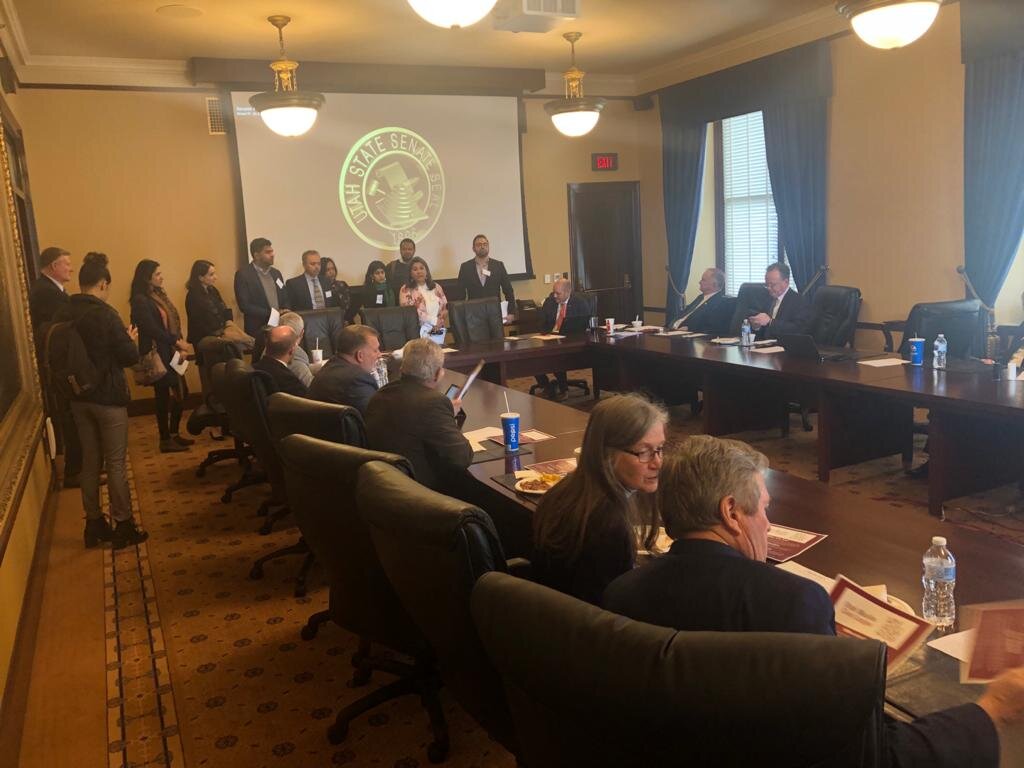

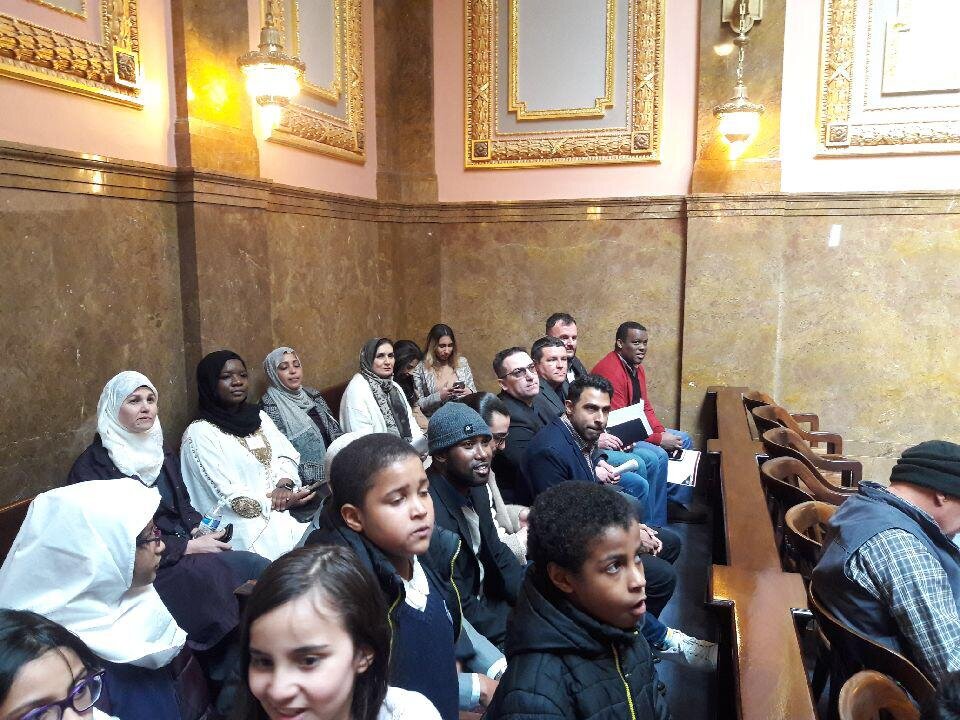

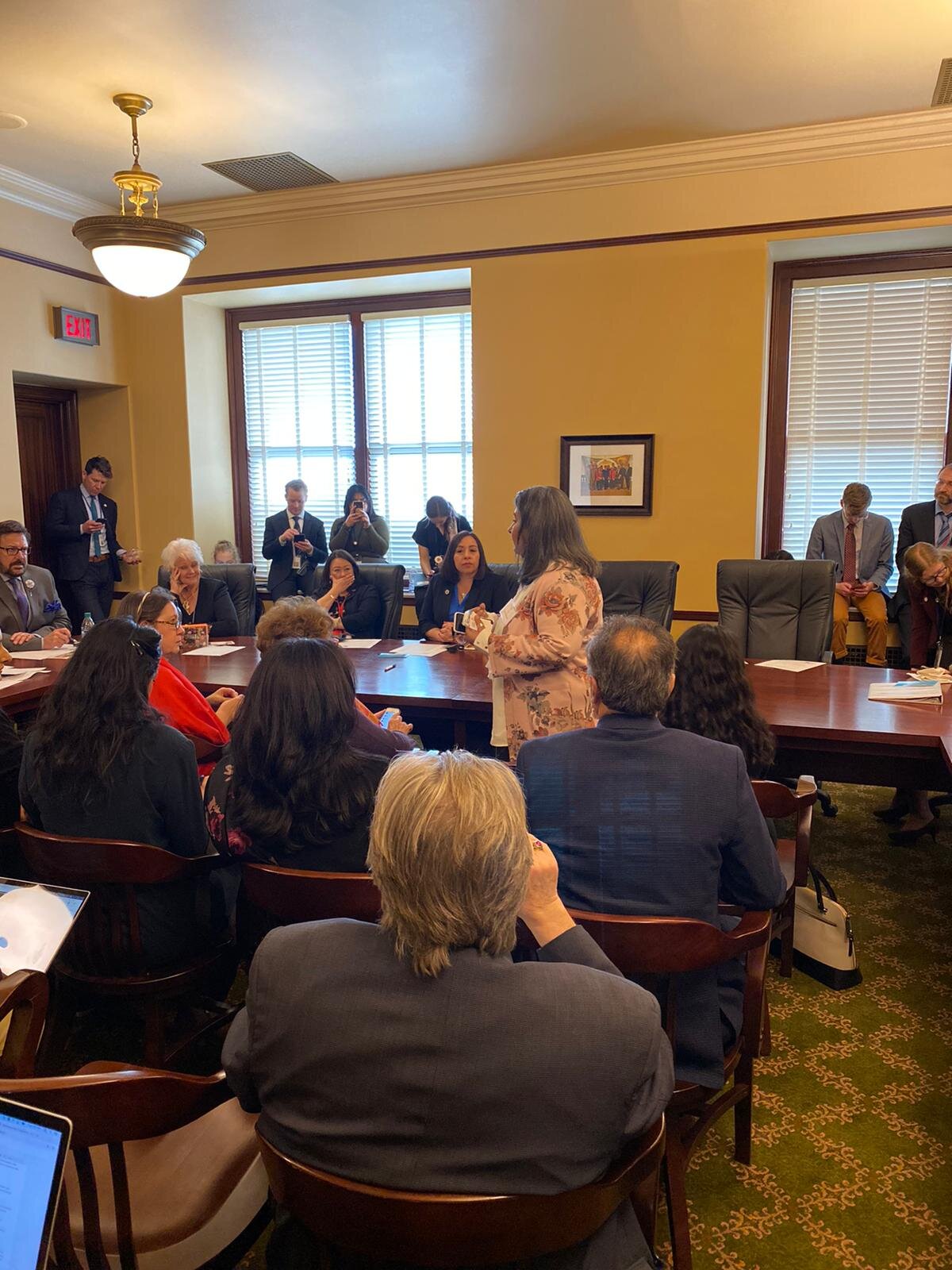
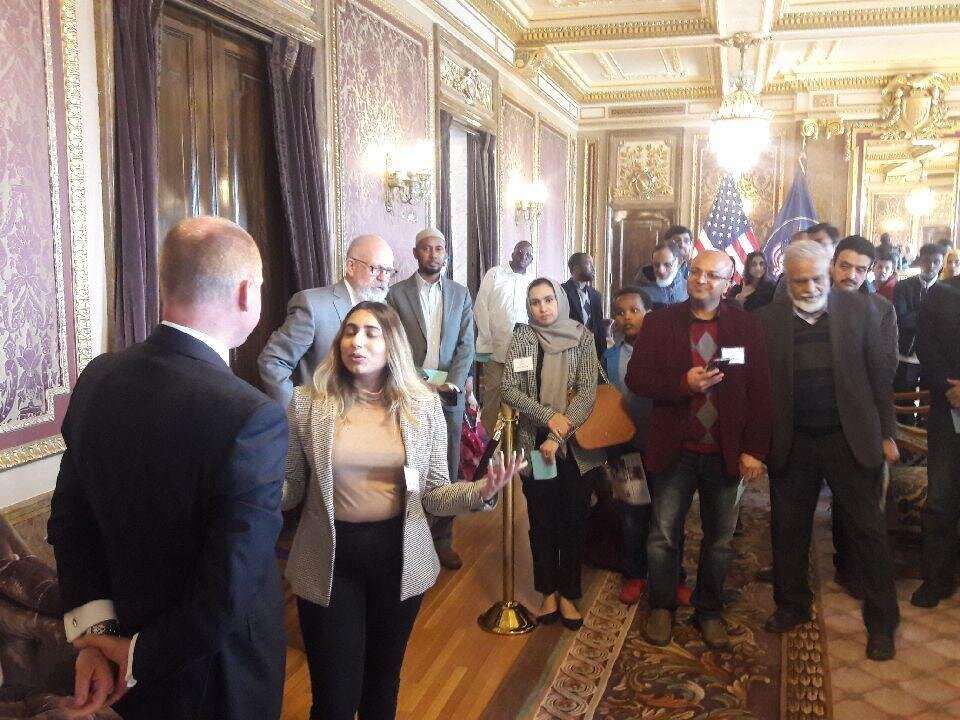
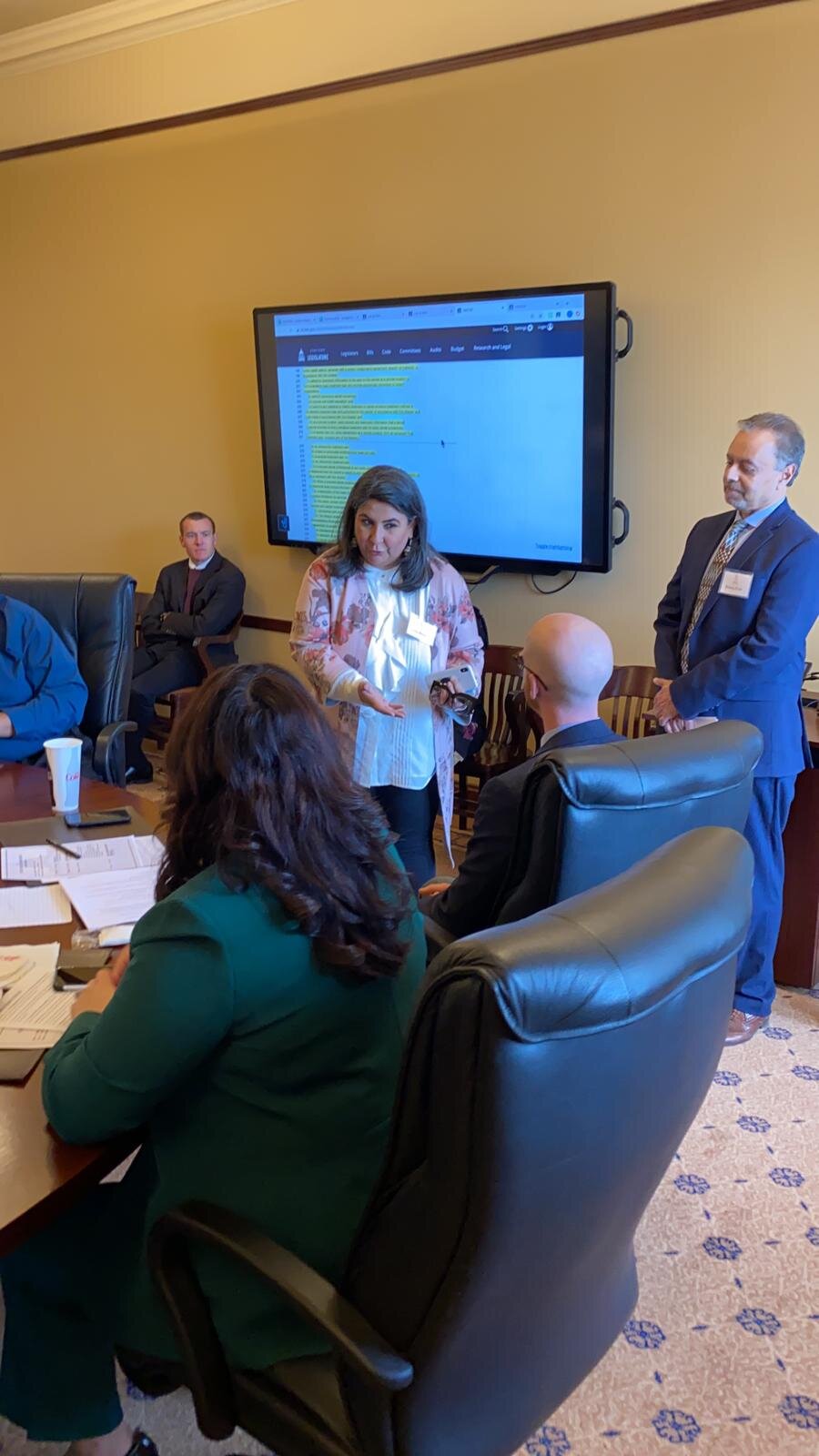
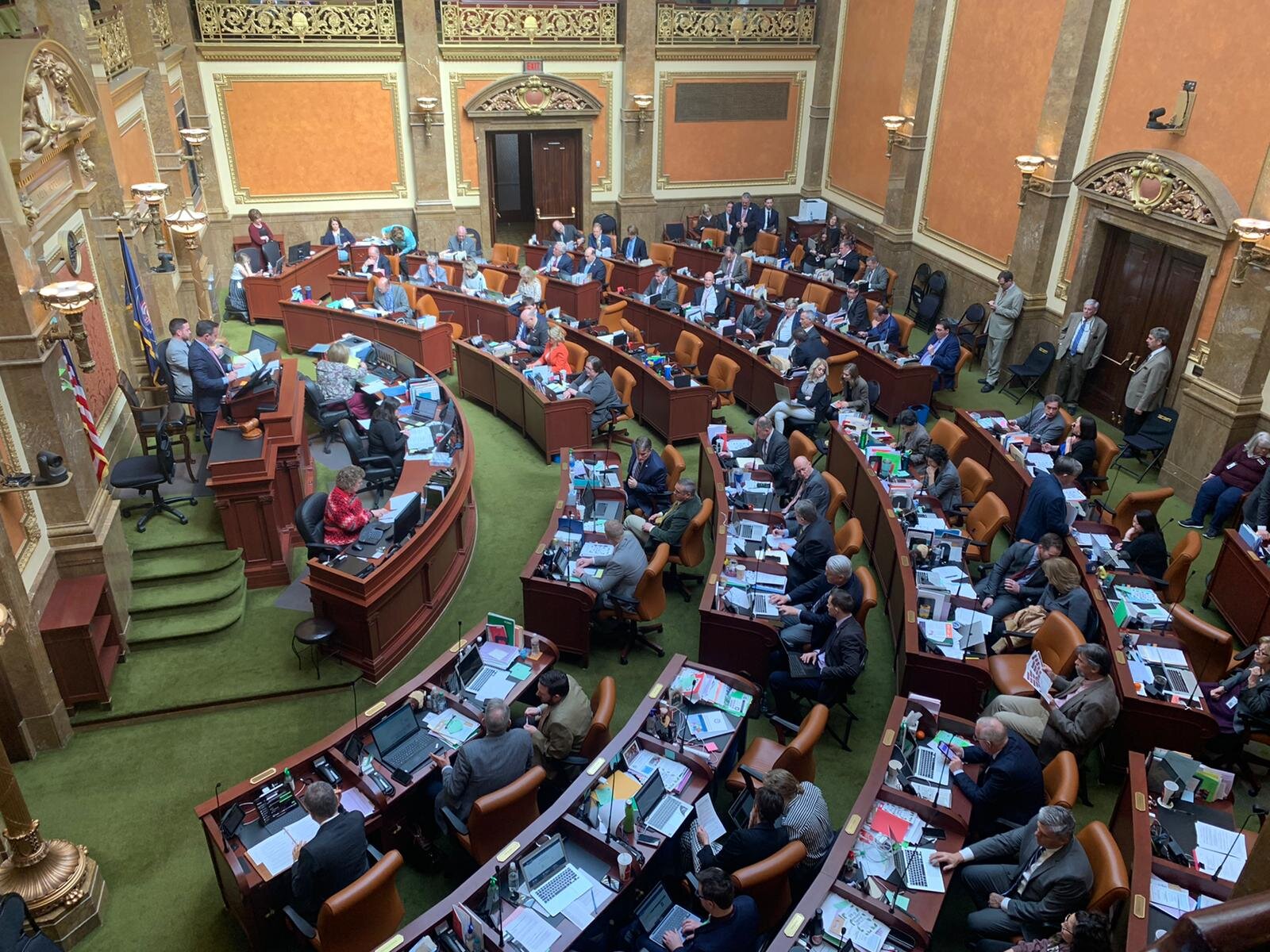

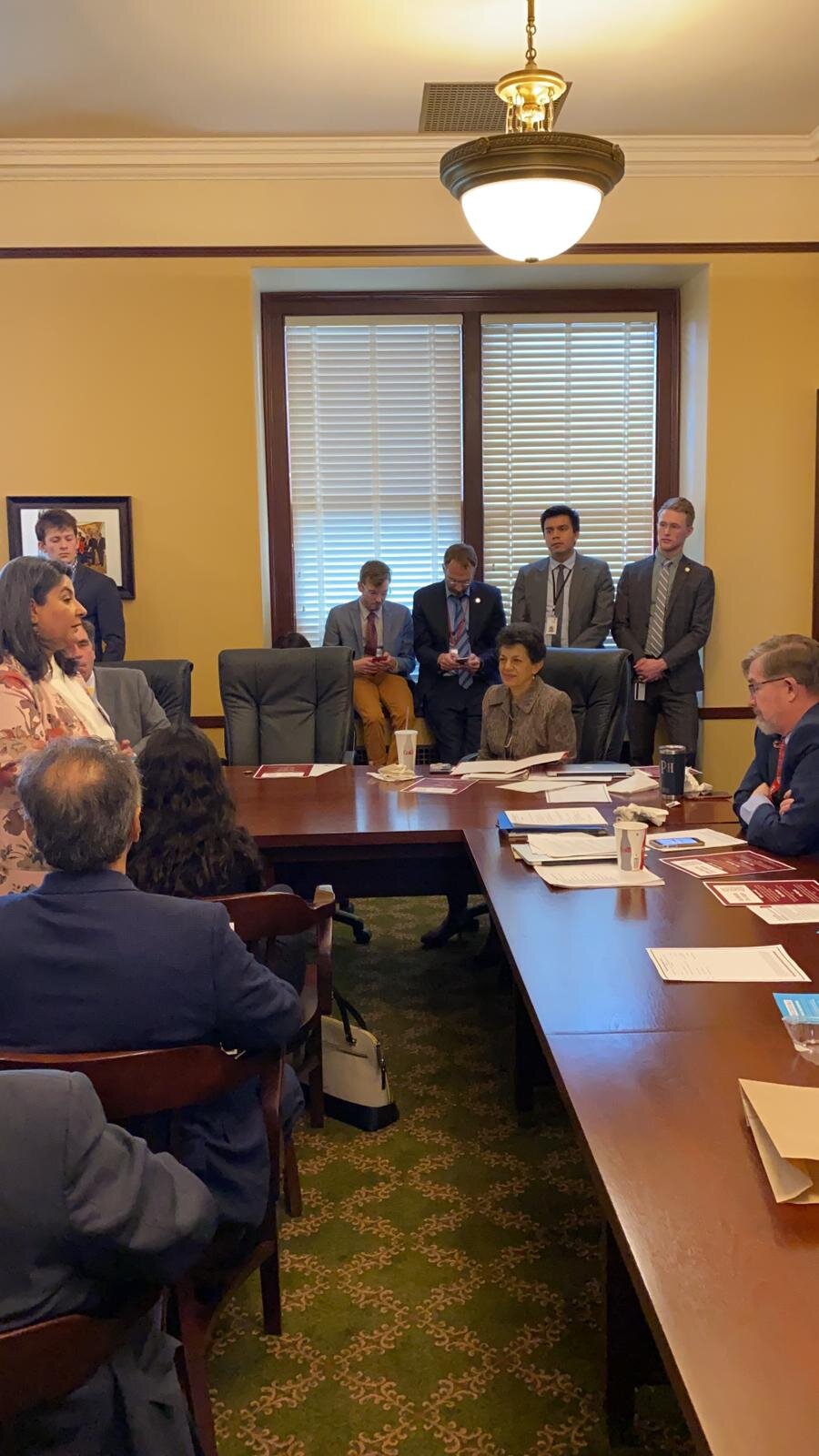
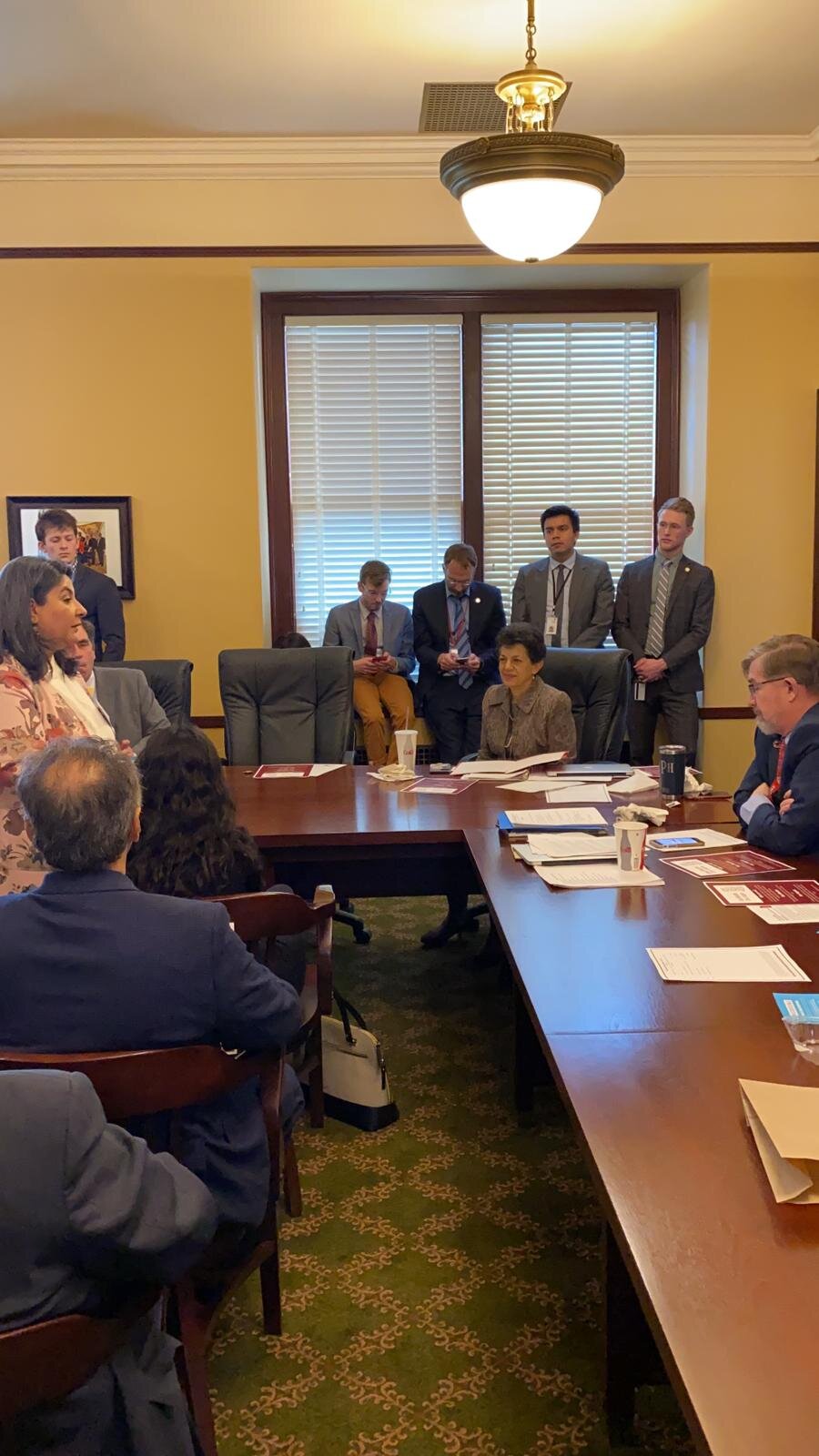
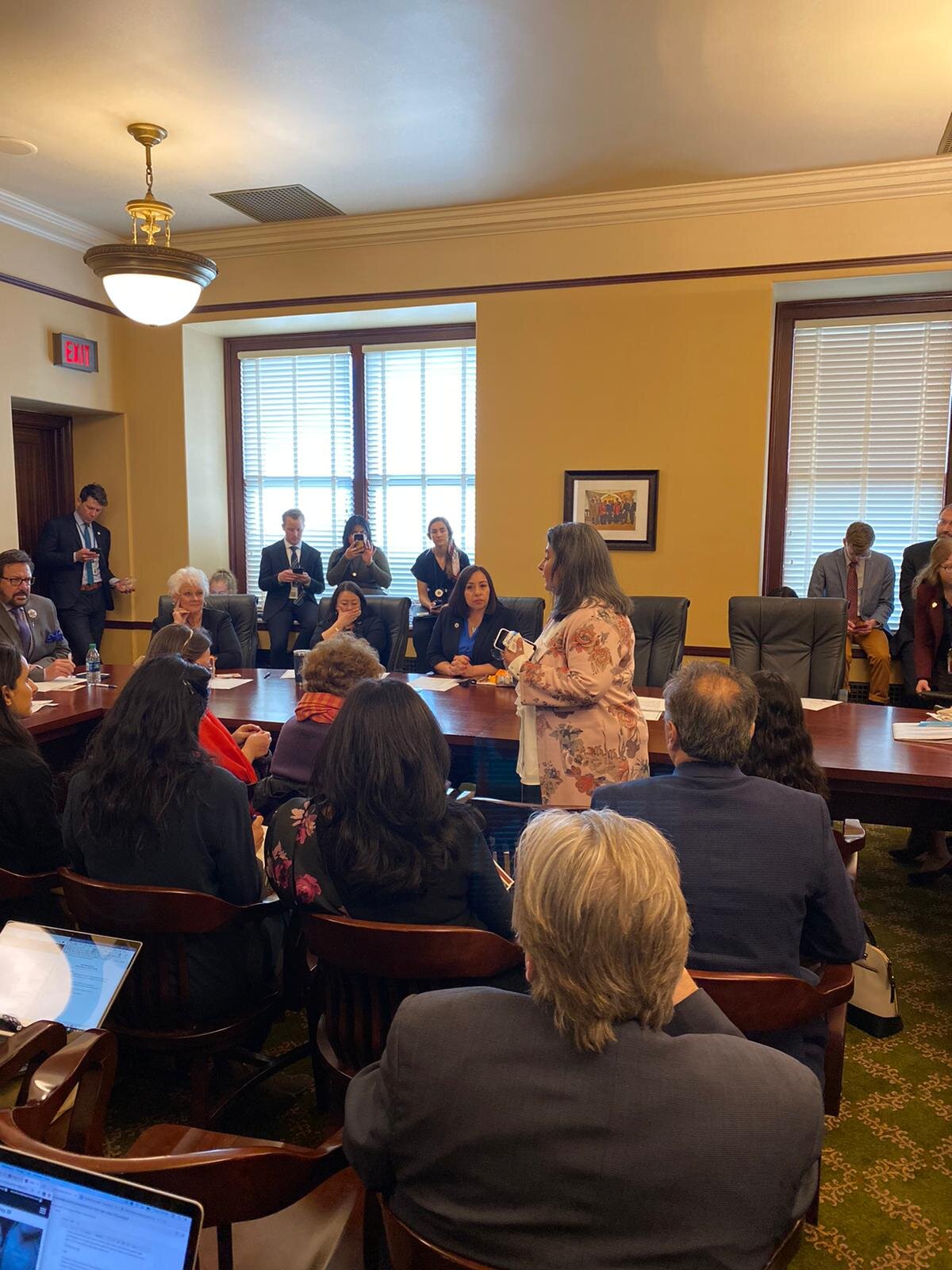
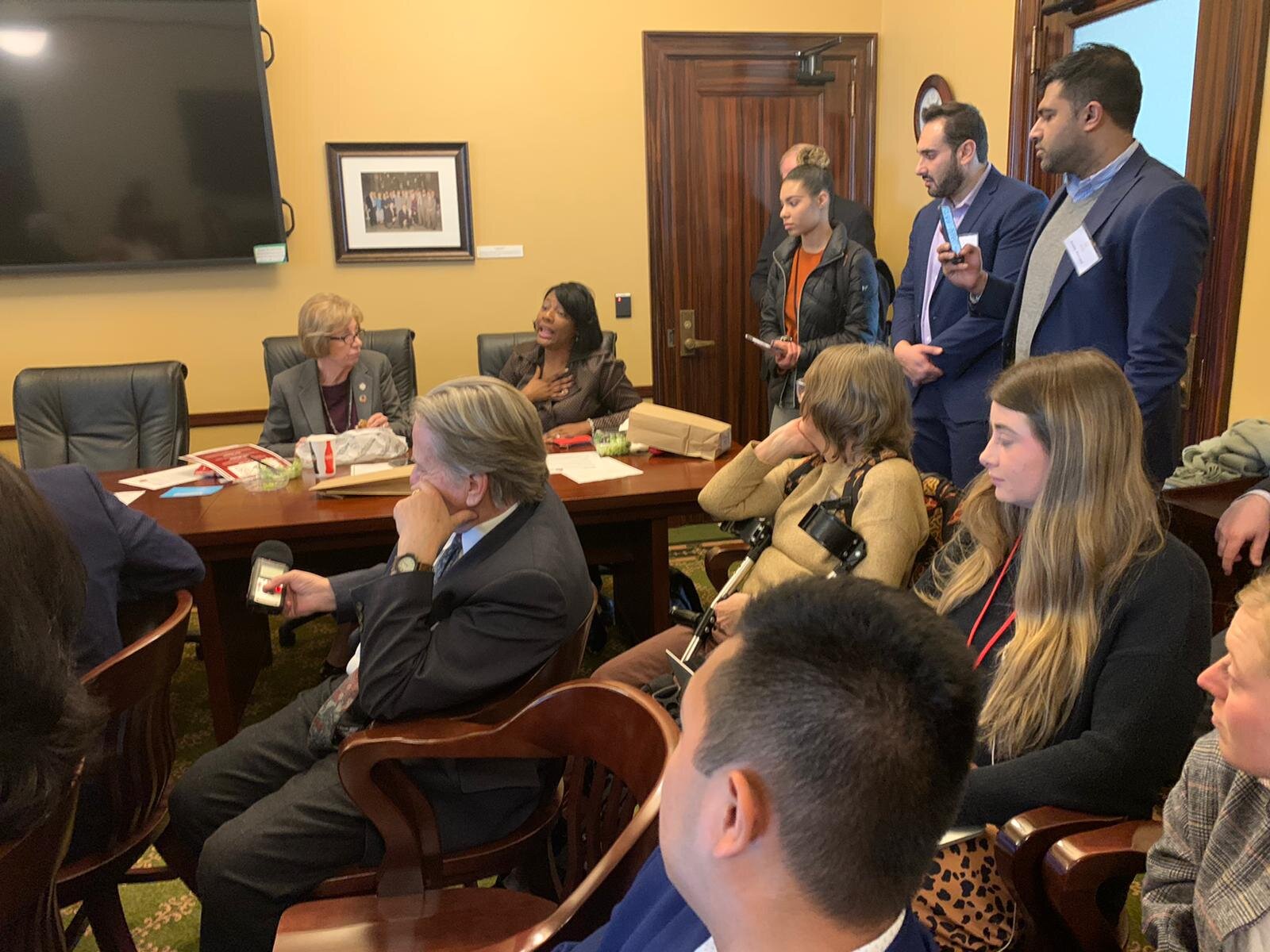

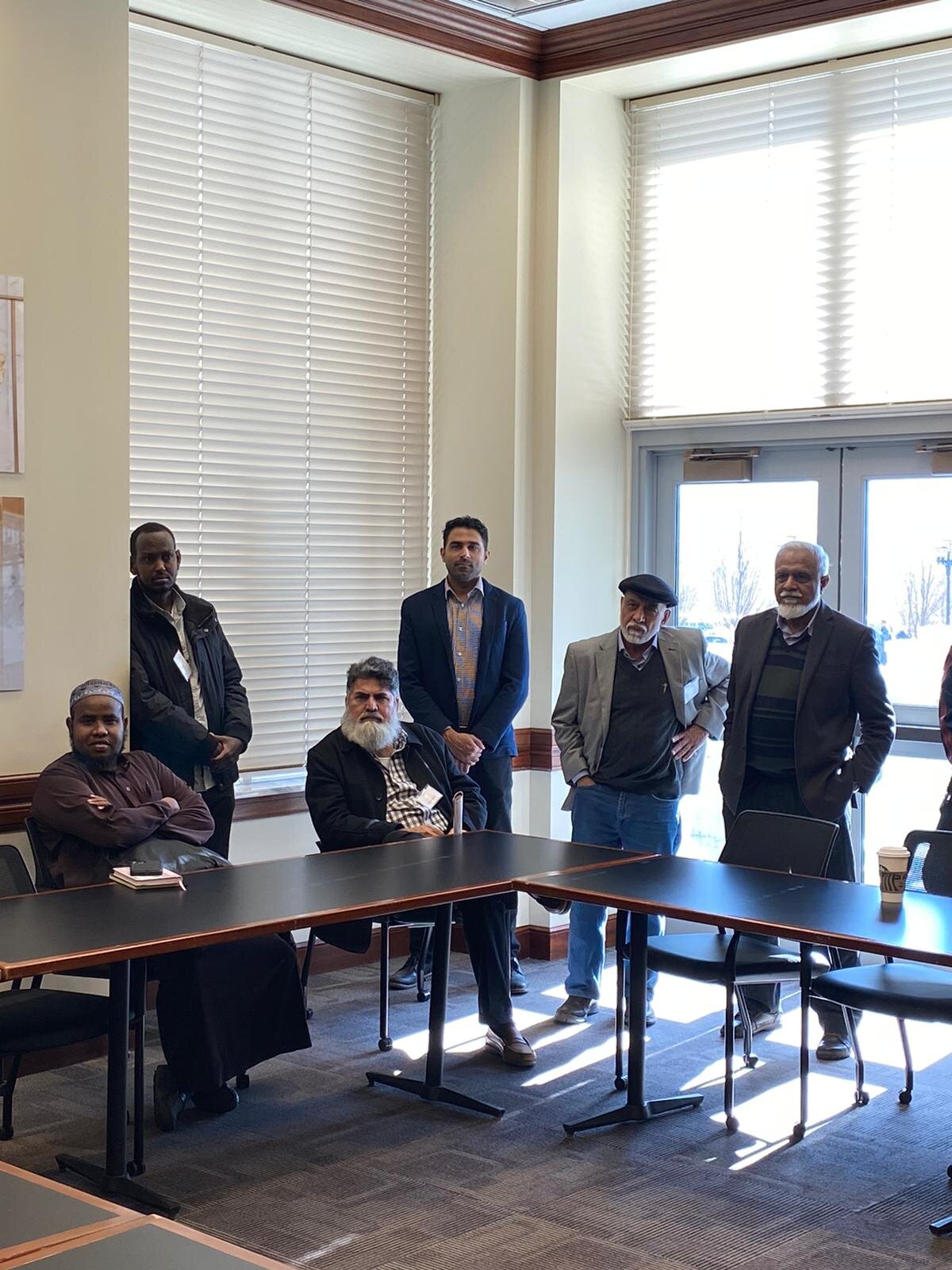


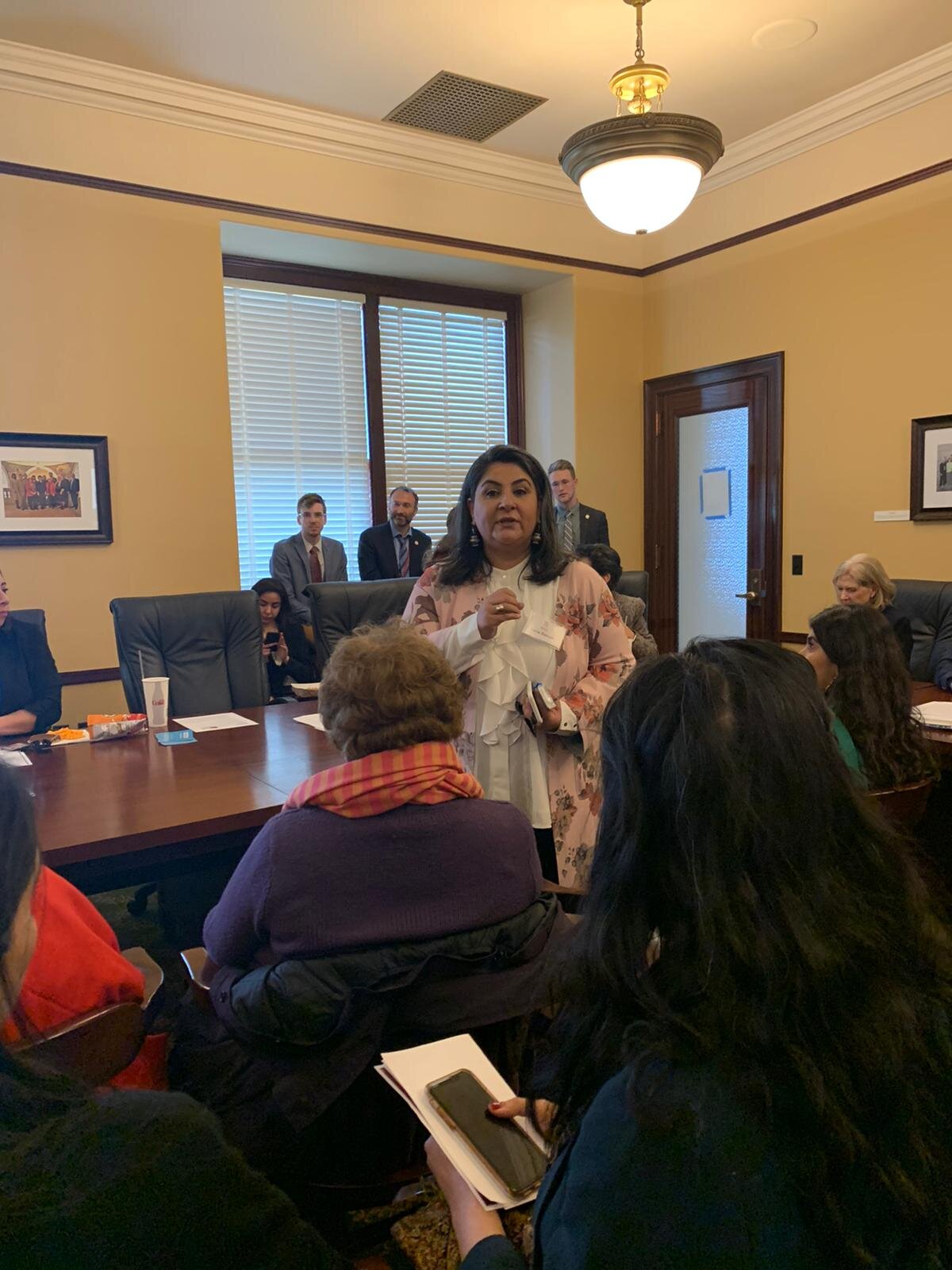
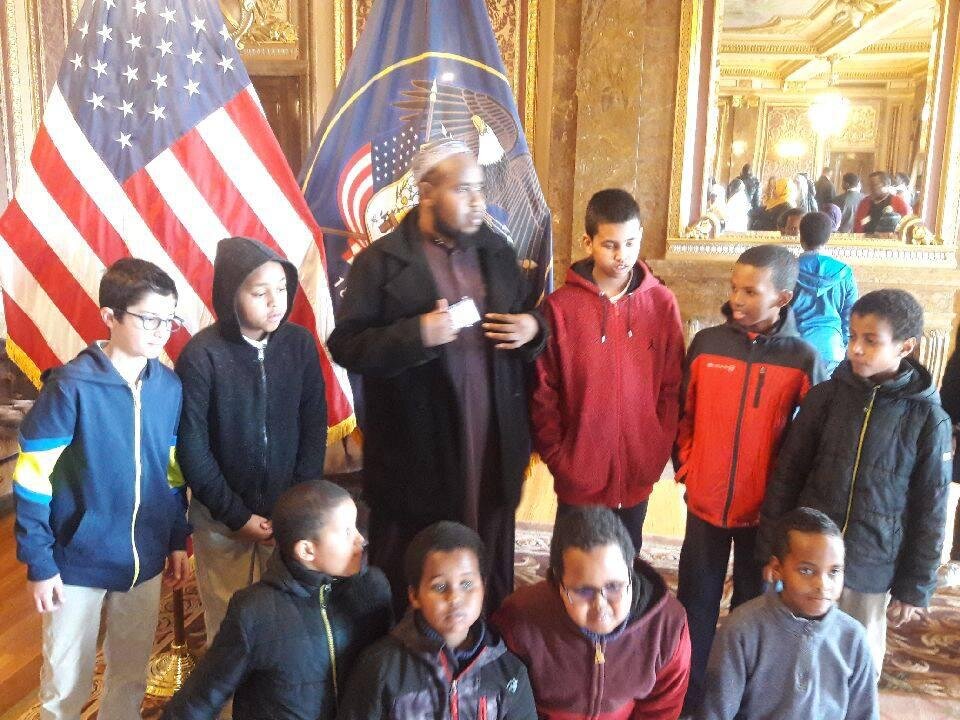
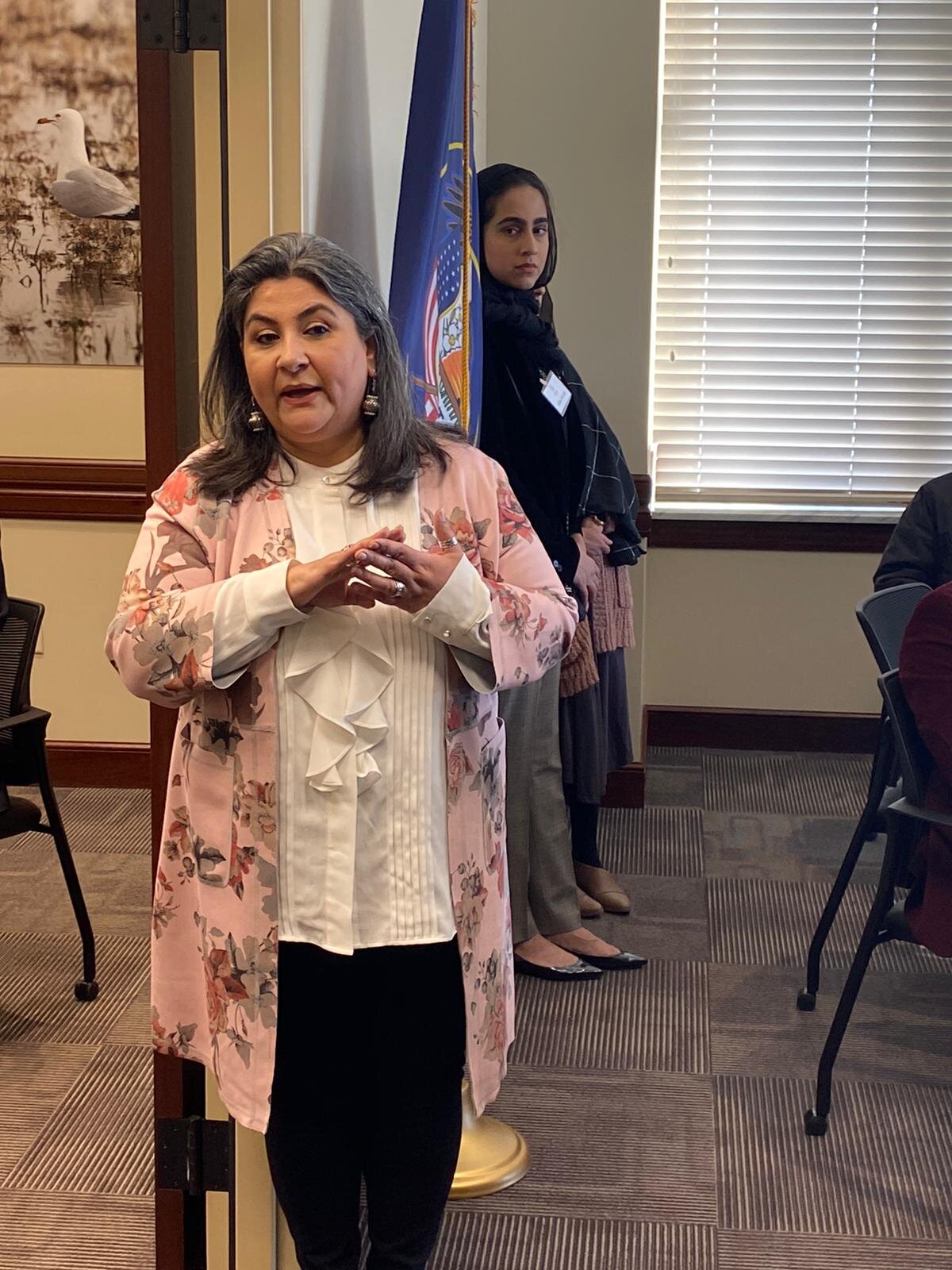
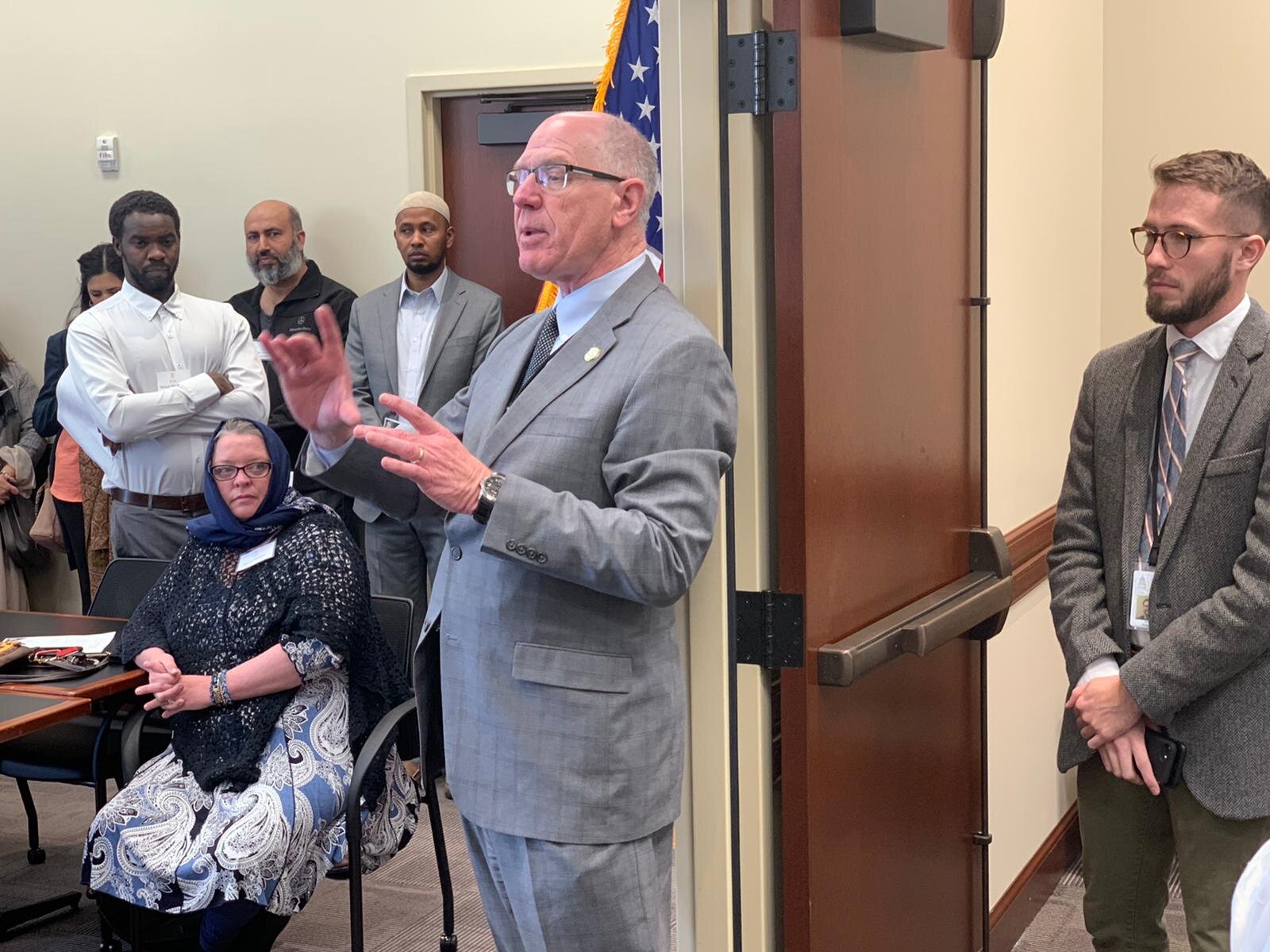
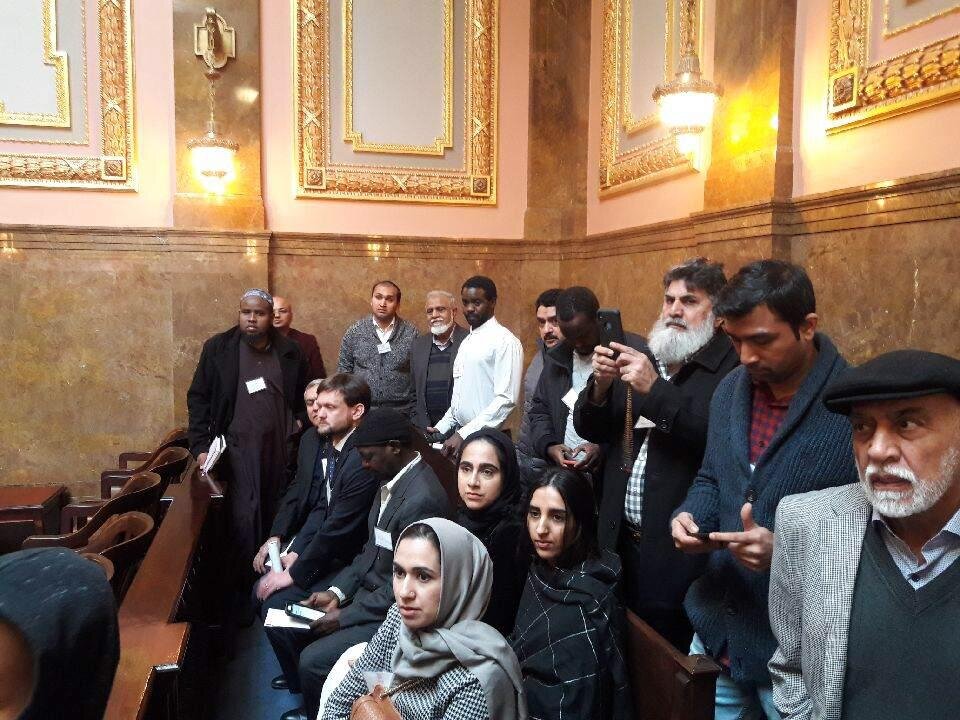
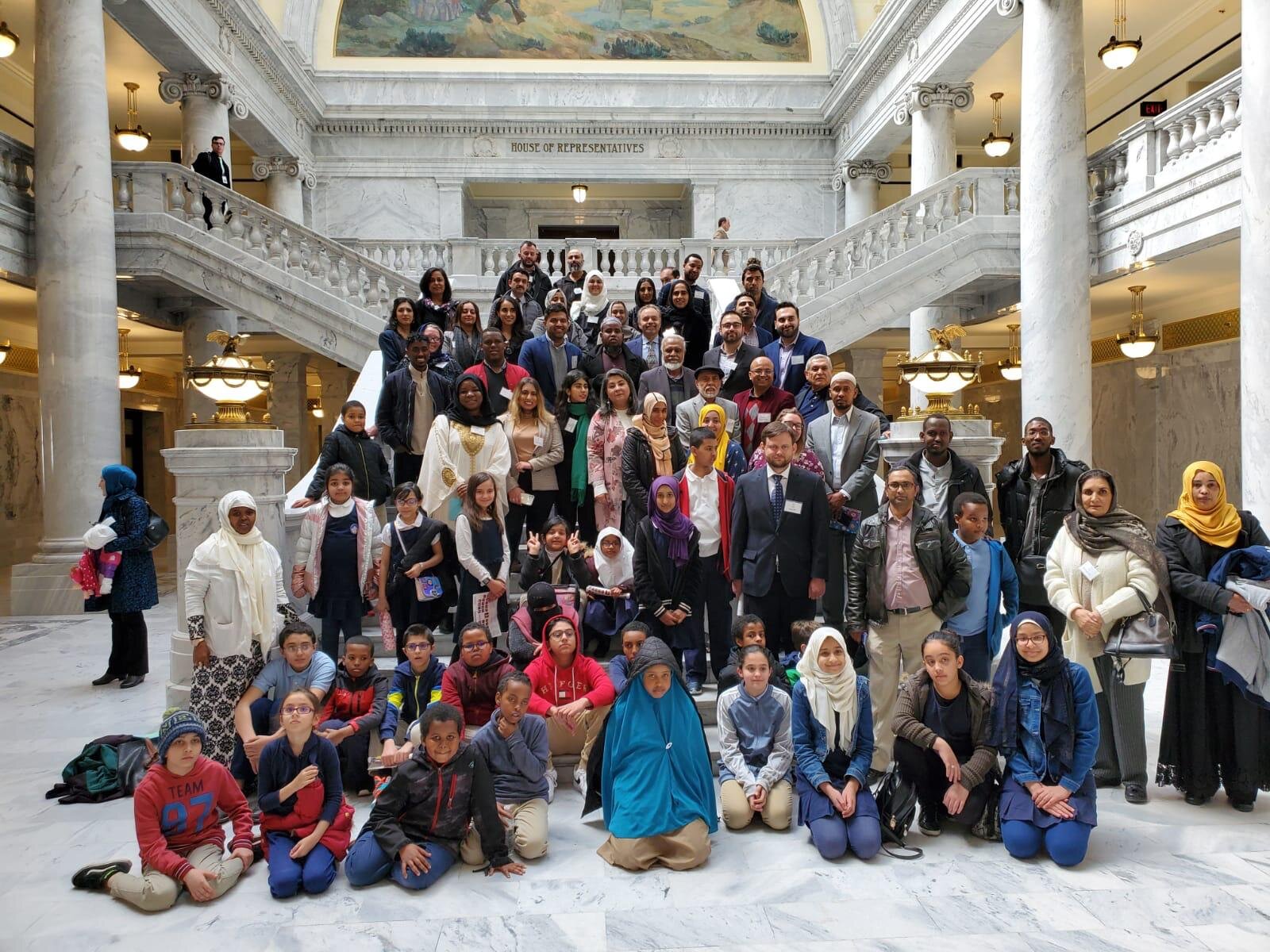
















































Glimpses from UMCL’s ‘Muslim Day on the Hill’.
About 150 participants joined us and made it one the most memorable day.
Over 100 members of the Utah Muslim Civic League visited committee meetings at the Capitol on Tuesday, February 25, 2020 to lobby for bills that impact the faith and refugee communities in the first annual Muslim day on the hill.
Executive Director for the League, Luna Banuri, said the main goal was to provide the Muslim community access to the Legislature and to show lawmakers faces of their Muslim constituents.
The event also aimed to teach Muslims in Utah how to exercise their civic rights. Muslims have the least engagement with their elected officials out of any faith community, with only 17% engagement nationally.
“When we live in communities that are as diverse as Utah is becoming, it is important to have everybody’s perspective heard and understood for the officials to be able to represent their communities.”
Utah is leading the way with resources for refugees but there are other issues lawmakers are not thinking of. UMCL raised awareness for several bills on Tuesday including HB160, sponsored by Sen. Carol Spackman Moss, D-Holladay. This bill would establish a program to help refugees who no longer qualify for traditional high school and are between the ages of 18-23 earn a diploma. The program would also provide career pathway planning.
UMCL supported HB176 by Rep. Jeff Stenquist, R-Draper, which reduces vehicle emissions by encouraging the purchase of cleaner cars in Utah for lower income people. The League also advocated for HB131, a bill to repeal a provision preventing cities, counties and towns to enact rent control measures to meet the needs of individual communities.
Banuri said the event helps to break down stereotypes many Americans have about Muslims.
“About 42% of the country has not had any interaction with Muslims and that drives the negative stereotype. There’s also research to show that … negative Muslim portrayal gets 82% more coverage and is almost equal to subjects like cocaine and cancer.”
“We want people to understand that the word Muslim is not a label that you attend a mosque, that you worship, a word Muslim is just culturally speaking something you grew up with — you learn values.”
